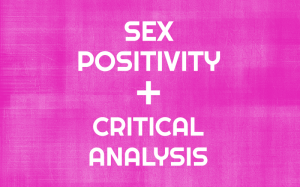
Three friends are hugging one another outside, standing against a red brick wall.
Activism in the digital age is a double-edged sword.
On the one hand, online activism can be extremely effective and accessible.
On the other hand, the Internet can make activists incredibly vulnerable to online harassment – harassment that can be draining, exhausting, and downright terrifying. Often, the harassment we face can lead us to burning out.
If you’re an activist that frequently uses the Internet for social justice, you probably know what I’m talking about. We’re often faced with an onslaught of harassing tweets, Facebook comments, Tumblr posts, and more, often consistently from the same person or group of people.
Speaking up about social justice makes a great number of people uncomfortable, especially when it threatens their position in society. For this reason, many people feel the need to harass social justice activists for speaking against oppression.
This puts us in a really painful position.
When you’re dealing with online harassment, it’s hard to feel safe, valuable, and loved. That’s why these affirmations are important – they remind us that we deserve peace in the midst of pain and conflict.
1. The Trolls Are Wrong
Constructive criticism is awesome. Trolls are not.
It’s important to be able to distinguish between the two.
Criticism takes down arguments and points out concerns and issues with an idea or action. Constructive criticism often gives feedback on how things can improve. This might also include calling someone out or calling someone in.
Examples of criticism could look like this:
- “Point 5 on this list is problematic because it doesn’t take the experiences of X group into account – so you’re actually erasing them.”
- “I disagree with you labelling Charmed as feminist because of the way Piper is represented in episode 5, season 3.”
- “There’s actually some statistical information that disproves your third point. Here’s a useful link.”
- “I agree with the message of your campaign, but it could trigger some people – and that’s something you need to address. Could you set up some debriefing clinics for those who need support?”
- “I get your point, but please don’t use ‘blind’ as a pejorative, as its ableist.”
Trolls argue for the fun of it, and they often make personal jabs intended to hurt someone’s feelings.
Examples of troll comments that I have recently received include:
- “Just look at her picture. She’s a bimbo – and an ugly one at that.”
- “You’re clearly just seeking attention. Wait til you get to the real world, little girl.”
- “Who cares? You’re just a rug-munching communist.”
(To be honest, I’ve totally reclaimed “rug-munching communist” in my Twitter bio.)
These are some of the tame ones. I’ve also received death threats, rape threats, and other comments that are way too hurtful and oppressive to paste here.
But you get the point: Trolls attack people along with, or instead of, ideas. They intend to be hurtful, and they often cross the line from one-off comments or tweets into consistent, recurring cases of harassment.
It’s natural to be hurt by trolls, but it’s important to remember that their harassment doesn’t mean you’re wrong.
They’re attacking you personally, even though they don’t know you – not that that would justify their actions – because they don’t know how to attack your arguments or campaigns.
2. And They’re in the Minority
When you take time to write a comment on a website or Facebook page, is it usually because you agree with the post, or because you disagree?
For the majority of people, it’s the latter. This is why comment sections over-represent dissenting comments.
Say you post an article or a post that goes viral, and a few people disagree with you. Out of all the people who disagree with you, a portion would harass or troll you. And I get it – just five mean-spirited comments can make you feel like the entire world disagrees with you.
But step back for a second. Out of all the people who saw your post, only a few people got nasty about it.
There are still a bunch of people who agree with you. They might show their agreement by liking or sharing the post, if they show their agreement at all.
Five nasty comments might seem like a lot, but they don’t represent the majority of people who’ve read your post.
Now, I’m certainly not saying the majority is always right.
What I am saying is that there’s a bigger picture out there – and it’s important to step back and remember that being harassed or trolled does not mean that you’re in the wrong.
3. You Don’t Have to Engage with Trolls – Or Even Read What They Say
It’s easy to say “Ignore the trolls.” It’s hard to put that mantra in action.
Activists often engage with trolls, despite our better judgement. Sometimes, it’s because we want to defend ourselves or our arguments. Sometimes, it’s because we feel the need to say something witty or hurtful in response. Sometimes, we want to educate them. Sometimes, it’s because we want to read insightful and earnest comments, and we accidentally happen upon trolls.
And I get it. We want to change the way horrible people think of us because we can’t bear being hated.
But ultimately, challenging the status quo means we’ll often clash with those who benefit from it. This conflict is a difficult, but sadly inevitable part of activism.
Often, we also want to hurt those who hurt us back, either through wit or well-thought-out arguments. While I love a witty comeback to trolls, it’s really hardly worth the time or energy. If you want to respond, do so once, screenshot it so that you feel awesome, and then leave it. Don’t get sucked into their arguments.
Education is usually a big part of online activism, so it’s normal that you’d want to educate your trolls. You might want to leave a few useful links in the comments, but it’s really not your job to educate anyone.
If you really want to know whether there’s anything useful in the comments, ask a friend to look through them and let you know if you received any constructive criticism and positive feedback. That way, you can learn from all the useful comments without being triggered or upset if there are some trolls.
If you’re getting trolled on Twitter, remember – once again – that you do not have to engage with anyone.
I used to block trolls on Twitter until I realized many of them got a kick out of being blocked. Now I simply “mute” them. Muting someone means you won’t see them if they pop up in your timeline or notifications, but they won’t be able to see that you’ve muted them. This way, you get all the benefits of blocking without stroking a troll’s ego!
4. You Can Tune Out of Social Media
Tuning out of social media is always a good way to avoid online harassment.
But it’s easier said than done, right?
As online activists, we often feel obligated to stay online, especially when people often turn to us for help through social media platforms. We’re activists because we care about people – and this means it’s difficult to make ourselves unavailable to people who might need us.
But – and this is such a vital thing to remember – you’re not alone in this. While your work is so important, it’s entirely possible for you to take a break from social media and pass the baton onto other activists.
When you tune out of social media, you might want to say something like, “Hi! I’ve decided to take a social media break for a while. If you have a crisis, please contact any of the following suicide hotlines and rape crisis lines below.” Alternatively, tag some fellow activists – with their permission! – who won’t mind helping others out.
Sometimes, it’s really hard to tune out of social media, especially when you’re feeling out-of-the-loop with current events. Here are a few tips:
- Switch your phone off for a little while, and notice how good it can feel.
- If this doesn’t work, you can temporarily deactivate social media accounts like Twitter or Facebook.
- If this doesn’t work, and you find yourself itching to reactivate your accounts after a short while, ask a trusted friend to help you. Give them your passwords, ask them to change those passwords and tell them not to let you know the new ones until your break period is over.
Most of us can’t afford to stop checking our e-mails – especially if we depend on our e-mail accounts to work. So, it might help to turn off e-mail notifications from social media. If you get an e-mail every time someone mentions you on Twitter or tags you on Facebook, it can make it really hard to feel like you’re truly tuning out. Change your settings so that this doesn’t happen.
5. Your Work Is Important and Valuable
When you’re bombarded with tweets, comments, and e-mails saying that you’re crap, it’s natural to feel like crap. It’s natural to feel like your work isn’t worth it.
But that’s certainly not the case. As I’ve said in the first point, the trolls are wrong.
Activism. Does. Stuff.
When I was a scared eighteen-year-old, first coming to terms with her sexual assault, I found a lifeline in the form of online activists. Following them on social media and reading about their stories and triumphs was incredibly affirming for me. Through them, I learnt about concepts like white privilege, cissexism, ableism, and more – concepts that made me a better person.
Activism saved my life, that time and dozen more times, too.
I want to say this on behalf of the scared eighteen-year-old: Thank you, activists. You are doing some amazing, life-changing stuff out here!
This said, the importance of activism doesn’t justify your feeling trapped in it. Which brings me to my next point…
6. You Are Valuable, Whether You Do Activism or Not
Most of us do activism because the world tells us we’re useless or unworthy.
Women and non-binary people are made to feel unworthy. Trans people are made to feel unworthy. Queer people are made to feel unworthy. Disabled people are made to feel unworthy. Poor people are made to feel unworthy. And so on.
Activism is – or at least, we hope it is – a space where we’re reminded that we’re valuable and special. For many of us, activism has given us a lifeline, and our activist communities mean the world to us.
Maybe, that’s why we’re afraid to take a break.
We feel indebted to our communities. We feel safe in our communities. We worry that taking a break from activism would mean losing our communities. An irrational thought, maybe, but a powerful thought indeed.
Activism adds a lot of value to the world, but you don’t have to engage in activism to be valuable.
Nor does our identity have to be consumed by our activism: Humans are multi-faceted, and you will still be somebody even if you’re not doing activism.
Your value is inherent in your existence. It doesn’t depend on what you do or who you are, but rather that you are.
7. Taking a Break and Practicing Self-Care Is Good
In activist circles, we emphasize the importance of self-care. Yet we’re so bad at putting self-care into practice.
Why? I think it could be because of what I mentioned in point 6: We often feel like if we’re not doing activism, we’re worthless. That means taking a break is scary for us, because it makes us feel useless.
Often, we say self care is important because the movement’s most valuable asset is people.
We need to take care of our assets if we want the movement to succeed. This means we need to take care of ourselves.
If we don’t practice self-care, the movement is simply not sustainable.
I agree with that, but I also want to remind you of point six: We are worth more than our activism. Our value is about more than what we contribute to the movement, so our primary motivation to practice self-care should be to take care of ourselves – not the movement.
***
Activism can be life-giving and beautifully powerful, but it can be so painful and exhausting to constantly deal with trolls and harassment.
Remember, above all else, that you are valuable and special, and the work you do is amazing.
Take care of the movement, but before you do that, take care of yourself.
[do_widget id=’text-101′]
Sian Ferguson is a Contributing Writer at Everyday Feminism and a queer, polyamorous, South African feminist who is currently studying towards a Bachelor of Arts majoring in English and Anthropology. Originally from Cape Town, she now studies at Rhodes University in Grahamstown, where she works as vice-chair of the Gender Action Project. She has been featured as a guest writer on websites such as Women24 and Foxy Box, while also writing for her personal blog. Follow her on Twitter @sianfergs. Read her articles here.
Search our 3000+ articles!
Read our articles about:
Our online racial justice training
Used by hundreds of universities, non-profits, and businesses.
Click to learn more




















